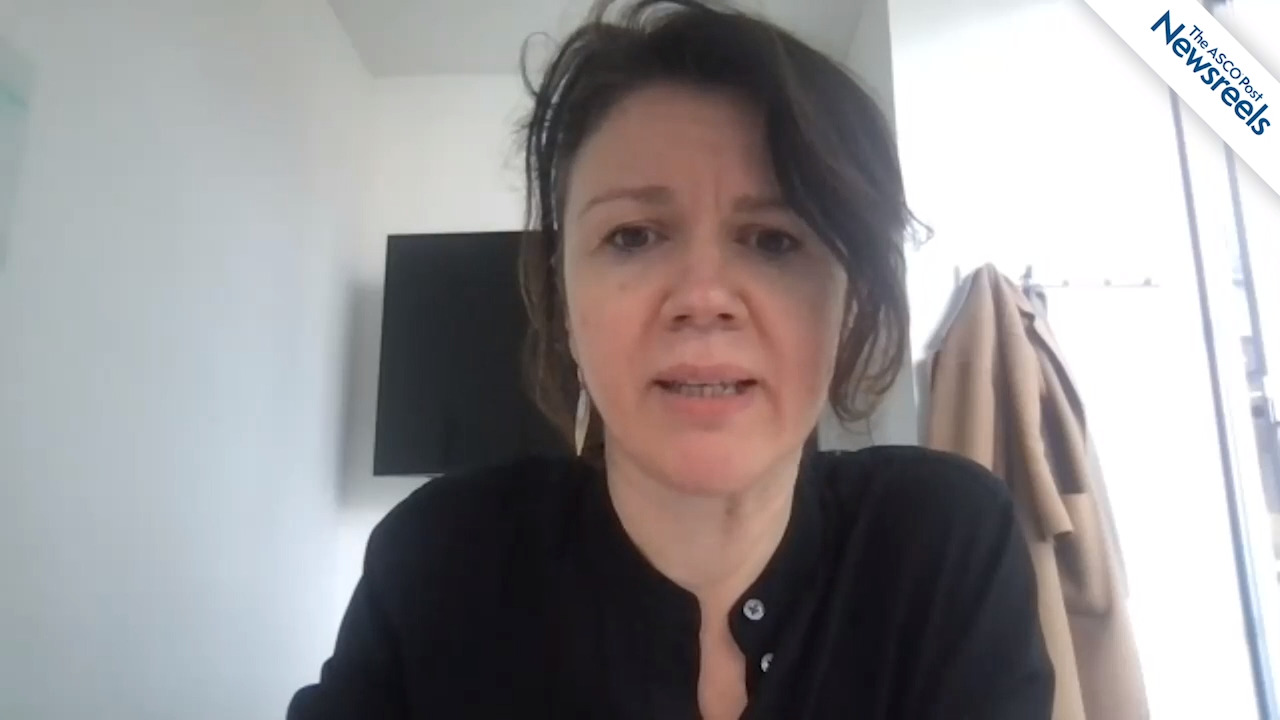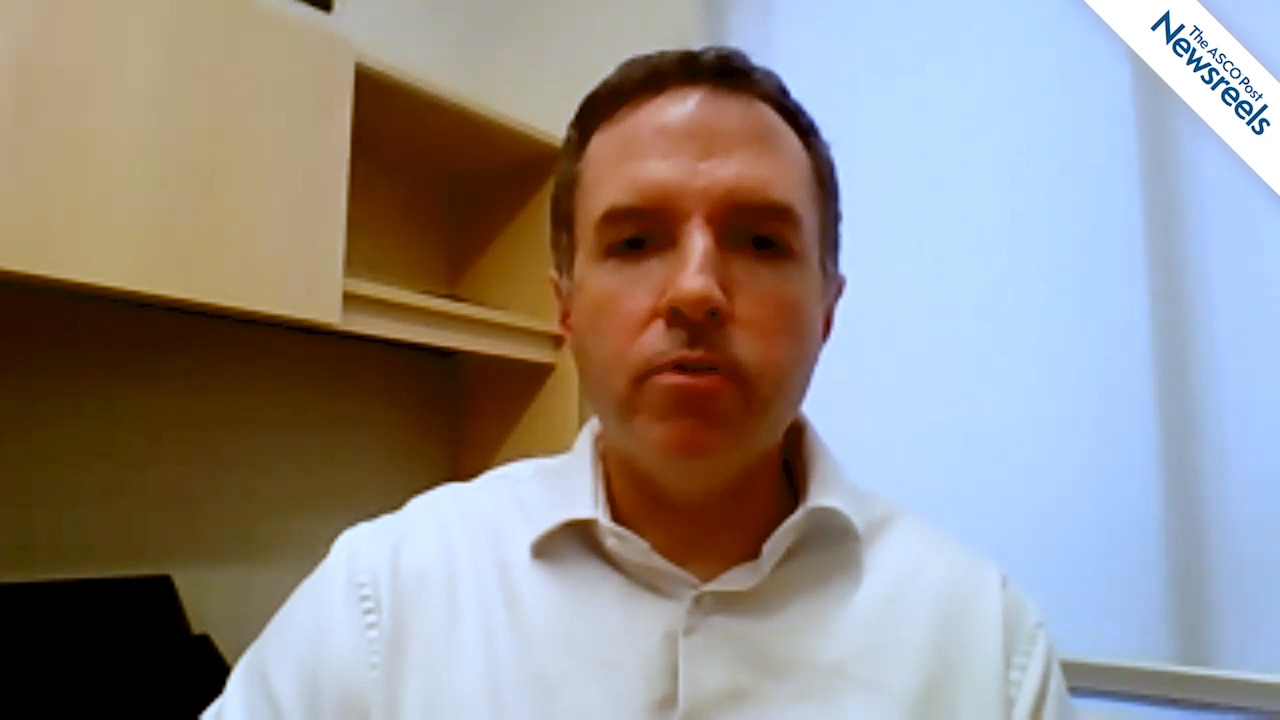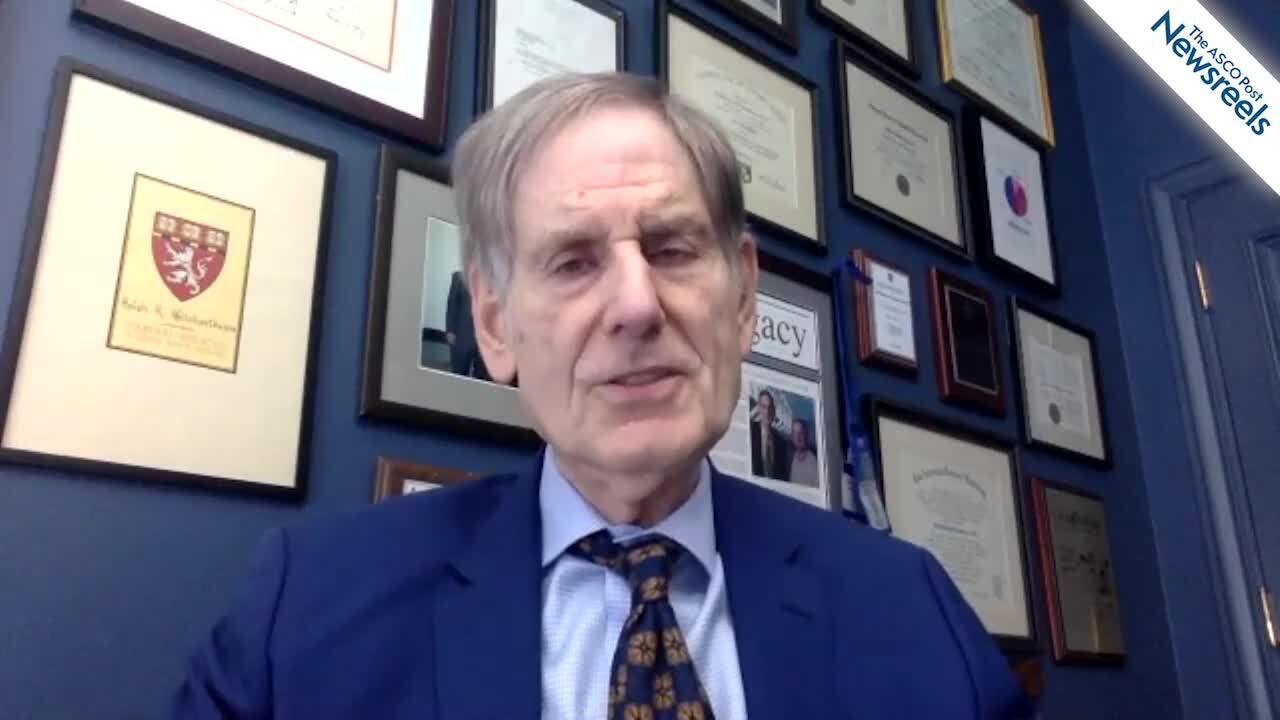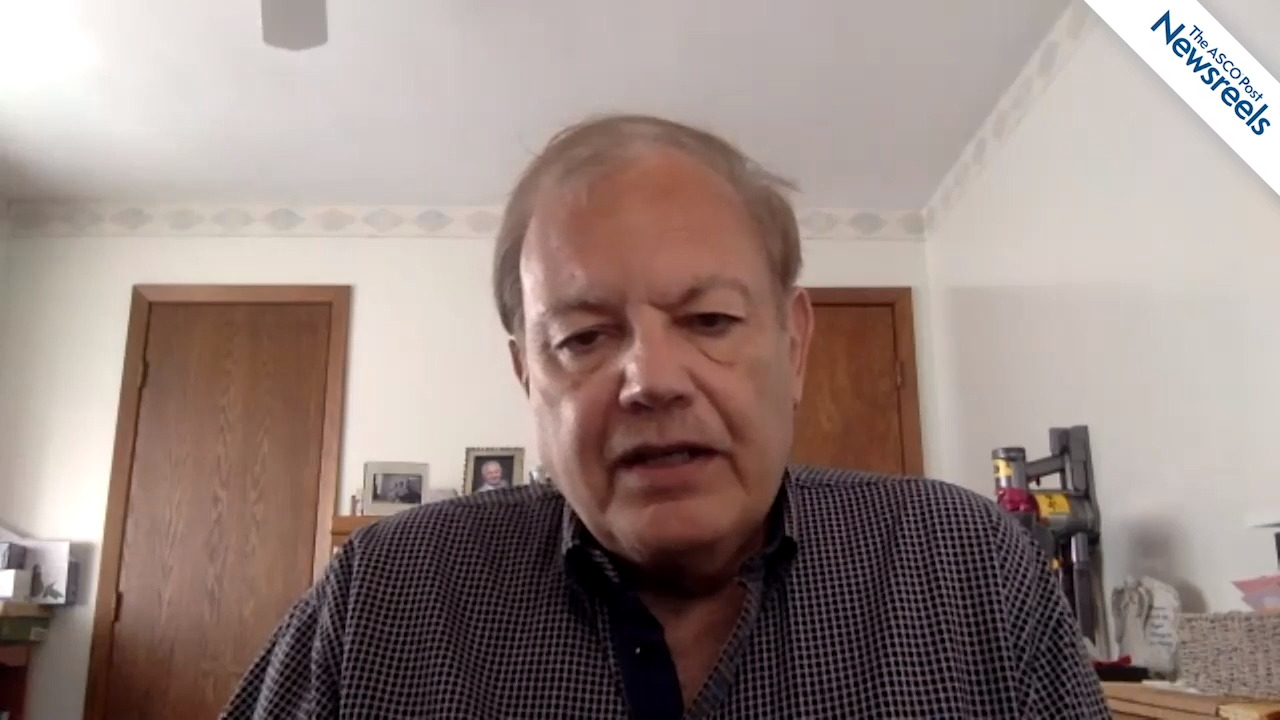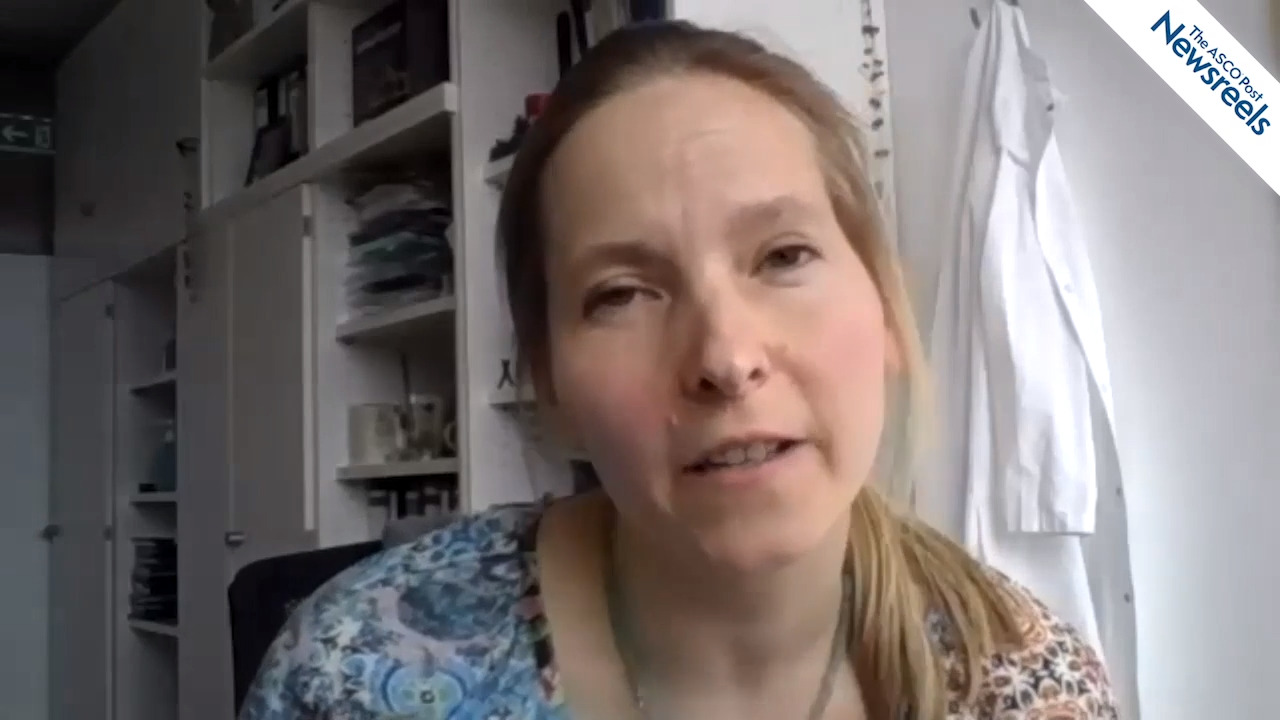Lipika Goyal, MD, on Treating Intrahepatic Cholangiocarcinoma With Futibatinib
AACR Annual Meeting 2021
Lipika Goyal, MD, of Massachusetts General Hospital, discusses phase II results of the FOENIX-CCA2 trial, which explored the clinical benefit of futibatinib, an FGFR1–4 inhibitor, tested in patients with intrahepatic cholangiocarcinoma that harbored FGFR2 gene fusions or other rearrangements (Abstract CT010).
The ASCO Post Staff
Samra Turajlic, MBBS, PhD, of The Francis Crick Institute, discusses our limited understanding of metastases in terms of the timing of dissemination, the many metastatic phenotypes and varieties of seeding, as well as how the spread of cancer evades the immune system and resists treatment. Expanding this knowledge base is critical to better managing malignant disease.
The ASCO Post Staff
Patrick M. Forde, MD, of the Sidney Kimmel Comprehensive Cancer Center at Johns Hopkins University, discusses results from the CheckMate 816 trial, which showed that adding nivolumab to chemotherapy as a neoadjuvant treatment for patients with resectable non–small cell lung cancer improved the pathologic complete response rate to 24%, compared to 2.2% with chemotherapy alone (Abstract CT003).
The ASCO Post Staff
Ralph R. Weichselbaum, MD, of the University of Chicago, discusses oligometastasis as a part of the metastatic spectrum where ablative therapies, such as surgery or stereotactic body radiotherapy, may be curative alone or with systemic agents, as well as some potential biomarkers to guide treatment selection.
The ASCO Post Staff
Dennis J. Slamon, MD, PhD, of the UCLA David Geffen School of Medicine, reflects on the ways in which breast cancer research pioneered the targeted treatment approach, as understanding of the basic biology of tumors deepened and new pathways were uncovered. He sees a future ripe with possibilities for new molecular targets to further improve outcomes for patients with breast cancer and other types of tumors.
The ASCO Post Staff
Jessica C. Hassel, MD, of University Hospital Heidelberg, discusses phase III results of a study that compared tebentafusp, a bispecific fusion protein, with investigator’s choice in patients with metastatic uveal melanoma. Tebentafusp nearly halved the risk of death among patients in the trial with this rare eye cancer (Abstract CT002).
